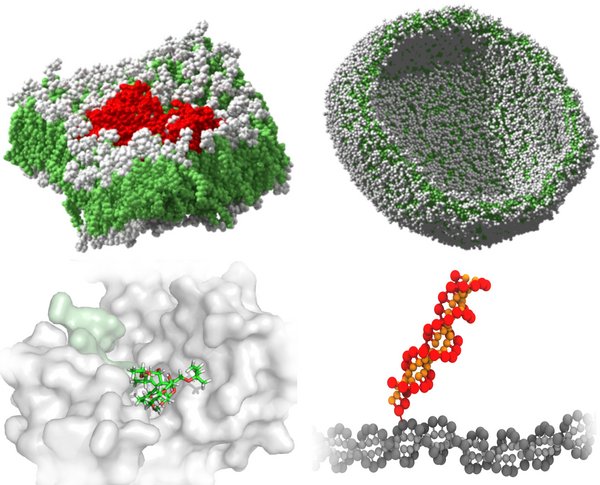
Cells, the fundamental units of life, are intricate and finely organized entities with complex internal structures and processes. Given that these processes often occur at scales beyond direct experimental observation, computer simulations serve as invaluable tools for exploration. Our focus is on the (sub)molecular level, as molecules constitute the building blocks of cellular substructures and play key roles in signaling and chemical reactions. While our ultimate goal is to simulate an entire cell at this molecular scale, current computational limitations lead us to concentrate on specific cell components, such as lipid membranes, DNA, proteins, and protein assemblies.
Current research projects include atomistic and coarse grained molecular dynamics simulations of phospholipid membranes, proteins, DNA and polymersomes, as well as the modelling of supramolecular (co)polymerizations and nanoparticles using Monte Carlo techniques.